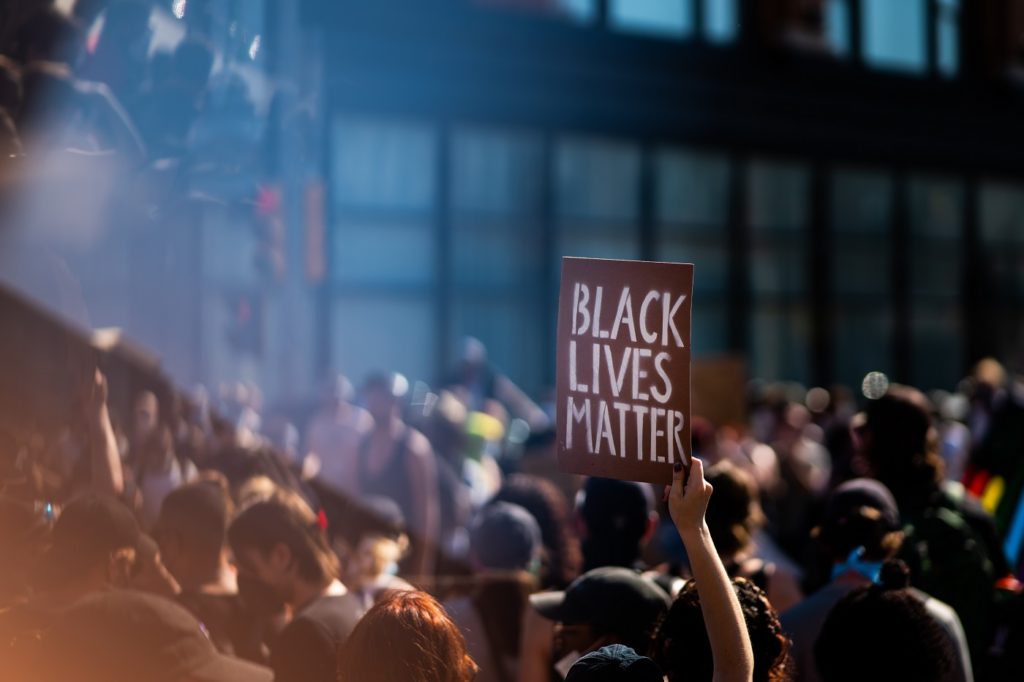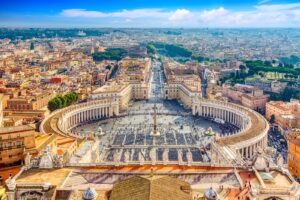We are in a period of transition. The classical liberalism that undergirds much of American society—including our political and economic structures—has come under serious critique by many, including conservative post-liberals and integralists.
But the most serious challenge comes from the left: the emergent system of beliefs that centers around social justice, identity politics, intersectionality, and antiracism. This system calls into question the basic tenets of classical liberalism and its commitment to such values as free speech, pluralism, meritocracy, color blindness, etc. Wesley Yang describes this “successor ideology” as “authoritarian Utopianism that masquerades as liberal humanism while usurping it from within.”
Yet to call this an ideology risks masking the religious nature of the phenomenon. As I have argued elsewhere, Wokeness meets a religious need by mimicking Protestantism, even as it marginalizes and distorts central tenets of Protestant theology. Wokeness directs religious energy and concern exclusively to this-worldly realities, and thus can be identified as “neopagan.” It is a secularizing offshoot of Protestantism, a quasi-heretical civil religion.
The decline of Mainline Protestantism, which was once the central source shaping the moral framework of American society, has left a vacuum. Wokeness aspires to fill that vacuum by becoming America’s post-Protestant civil religion.
Start your day with Public Discourse
Sign up and get our daily essays sent straight to your inbox.Affirming the Good
In spite of its heretical secularization of Christian teachings, Wokeness can potentially serve a constructive purpose. Heresies are one-sided, unbalanced, partial truths, but they often emerge as an attempt to solve pressing needs within theology. Historically, heretical movements have often inspired either nuanced refinements of teachings that were previously unclear or original statements on issues that were hitherto unaddressed in a sufficient manner.
Heretics as would-be reformers need to be corrected and chastened. At the same time, the Church should not hastily reject the challenges they pose. So what needs have the Woke brought to the surface?
First, the Woke bring attention to evil embodied within systems and structures, what Christian theology has at times referred to as “principalities and powers.” Christians should be open to the idea that sin affects everything, even apart from the intentional motives of individuals—about which Lutherans and the Reformed, especially, do not harbor sanguine views.
The decline of Mainline Protestantism, which was once the central source shaping the moral framework of American society, has left a vacuum. Wokeness aspires to fill that vacuum by becoming America’s post-Protestant civil religion.
This leads to its second main contribution. The Woke expose the myths of the individual and the meritocracy. We are social creatures; none of us can make it in this world on our own, and all of us are affected—positively and negatively—by our communities and our position within them. To attribute one’s successes or failures solely to one’s own efforts ignores the role that the contingencies of sociality, biology, and environment play in our lives. Such a perspective inclines either toward pride, ingratitude, and callousness in those more fortunate, or despair among the less fortunate.
Third, Wokeness brings to attention unhealed social wounds. While the tools that Wokeness brings to bear to interpret and address these wounds are lacking, Christians can never harden themselves to the cries for justice or simply dismiss charges brought against them—especially if those charges come from fellow Christians among whom reconciliation remains an ever-present imperative. Accusations of complicity can be humbly faced by those who know they share in the original sin of the first Adam and are redeemed by the second.
Assessing the Problems
The problems with Wokeness are legion. Almost all of the issues stem from its near-complete secularization of Christian categories.
In Wokeness, good and evil are reduced to human agents and social forces. Sin is no longer an offense against a holy God, but a crime against humanity and civil rights. The sacred are the innocent victims of pernicious social forces. Salvation consists in demonstrating one’s own innocence and purity to present and future generations by awakening to these realities, feeling moral indignation, and opposing them. The heavenly Kingdom is translated into a future society of diversity, equity, and inclusion that the elect—or “Woke”—are responsible for ushering in.
Wokeness imagines it can bring about utopia by discarding all that has preceded it, and it justifies immoral measures as part of the revolution. It limits the scope of original sin to particular groups, who are neatly identified as the oppressors or the unjustly privileged, while identifying others as innocent victims whose perspectives cannot be contested.
Wokeness is fideistically commited to its basic tenets, which are closed off from reasoned refutation. It puritanically and tenaciously hunts for offenders, encroaching unforgivingly into people’s lives. While properly critiquing individualism, it falls into a tribalistic collectivism that imputes group guilt and shame to all members associated. And this leads to its troubling proclivity to scapegoating.
The Woke identify the source of all our social ills as particular human individuals and groups and then unleash wrath upon them in hopes of restoring peace. The nature of the Woke pursuit of justice is profoundly divisive, unforgiving, and lacking in mercy. It seems to offer no resources for reconciliation.
The nature of the Woke pursuit of justice is profoundly divisive, unforgiving, and lacking in mercy. It seems to offer no resources for reconciliation.
Reforming the Woke
Wokeness highlights serious issues but interprets them incorrectly, using tools that create more problems than they solve. Would it be possible to redirect its pursuit of justice in more constructive directions? Is Wokeness reformable?
In their important critique of the various streams of Wokeness, secular liberals James Lindsay and Helen Pluckrose argue for a return to classical liberalism alongside a restored trust in science. This certainly addresses some of the irrational fideism and collectivism mentioned above. It also helps us more accurately assess the nature of structural and systemic issues and their solutions by retrieving a more prominent place for empirical analysis and rational debate. Ultimately, however, this is an inadequate response, because it fails to address the deeply religious nature of the phenomenon.
Political theorist Joshua Mitchell gets closer, engaging in theological analysis even as he echoes the appeal to retrieve liberalism. Mitchell calls for collaboration among citizens in order to tackle social problems, with an emphasis on personal agency, responsibility, development, and competence, as opposed to group grievance. Some religious scholars invoke the idea of an American national covenant—the notion that we need to retrieve the original recognition of America as responsible before God. This helps us acknowledge our historical sins and ongoing judgment, but also provides hope in a common vision of America as a nation instead of tribes intractably at odds.
Ultimately, the problems inherent in Wokeness require theological reformation. This will include, among other things, retrieving the proper doctrine of original sin, which does not apply only to certain groups who can be neatly classified as oppressors. No, all are marked with the stain of sin, fall short of the glory of God, contribute to social disorder, and are in need of redemption before God and reconciliation with one another. Such redemption and reconciliation can only be achieved through the Scapegoat who is both human and divine.
Our social ills will not be resolved by unleashing all of our wrath on any human individual or group. In Christian theology, only Christ can take away our sins and restore us to God and one another. This does not absolve any party from responsibility. Rather, all parties are called to honest and humble self-assessment and a resolve to right wrongs. Likewise, we are all called to endure hardship, forebear with one another, wait for the judgment of God, and be willing to show mercy to others, knowing God has been merciful with us.
While Christians can and should join with their fellow citizens in causes of justice, the goals that Wokeness seeks properly belong in the Church, not in the political sphere. This is a problem with civil religion in general: it has a tendency to marginalize the Church. Concepts that are properly theological and ecclesial begin to migrate into the civil sphere, in which they become distorted. To achieve reconciliation, for example, Wokeness needs the resources of the gospel and the sacraments. The Church is to be a site of humbling and hope in light of who God is and what Christ has done.
People are angry, anxious, and looking for an object of blame. They’re also looking for something to believe in.
Reasons for Hope?
For decades, the groundwork for Wokeness as civil religion has been laid by critical theory’s “long march through the institutions.” Proponents of Wokeness already hold positions of influence in influential cultural organizations—particularly within the media and higher education—and now its influence is increasingly felt in the government and public schools.
The pandemic provided the perfect opportunity for its near-total accession. Churches have been closed, our social lives are withered, we are anxious about our futures and feel little sense of control, and our discourse about our problems is conducted almost exclusively on the internet. People are angry, anxious, and looking for an object of blame. They’re also looking for something to believe in.
Wokeness provides an alternative faith that highlights important truths such as systemic evil, the sociality and contingency of life, and the imperative to address unhealed social wounds. But Wokeness is crippled by serious flaws. It needs to retrieve the orthodox teaching on the universality of original sin, the Christian understanding of salvation through the divine Scapegoat, and the centrality of the Church in its social imagination.
We must pray that, when this pandemic has abated, people will return to church, seeking God with others in the flesh. Protestantism may never regain its role as a unifying civil religion in our nation, and there is far less reason to be optimistic about the possibility of the civil polity’s subordination to an ecclesial body, à la Catholic integralism. But if more Americans refocused the religious energy of Wokeness within the household of faith, it would undoubtedly contribute to peace among the peoples of our nation.












